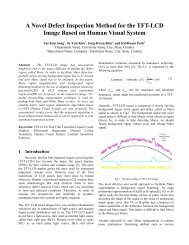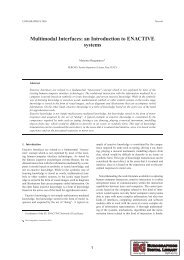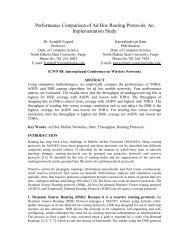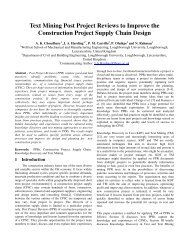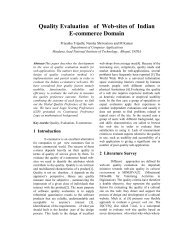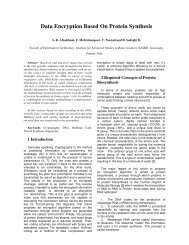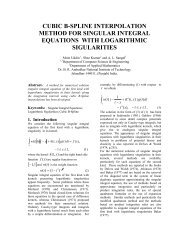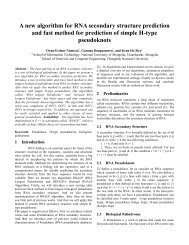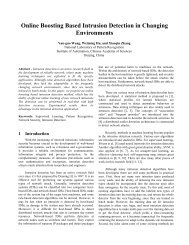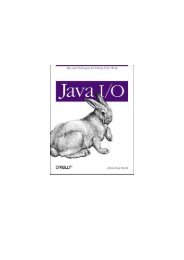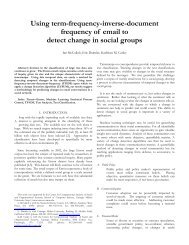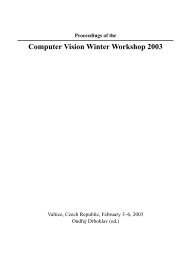O'Reilly - Java Message Service
O'Reilly - Java Message Service
O'Reilly - Java Message Service
You also want an ePaper? Increase the reach of your titles
YUMPU automatically turns print PDFs into web optimized ePapers that Google loves.
<strong>Java</strong> <strong>Message</strong> <strong>Service</strong><br />
Numeric literals are expressed using exact numerical (+22, 30, -52134), approximate<br />
numerical with decimal (-33.22, 100.00, +7.0), or scientific (-9E4, 3.5E6) notation.<br />
Boolean literals are expressed as TRUE or FALSE.<br />
D.3 Comparison Operators<br />
Comparison operators compare identifiers to literals in a boolean expression that evaluates<br />
to TRUE or FALSE. Comparison operations can be combined into more complex expressions<br />
using the logical operators AND and OR. Expressions are evaluated from left to right:<br />
Age < 30 AND Weight >= 100.00 OR LName = 'Smith'<br />
In this example, the expression would be evaluated as if it had parentheses placed as<br />
follows:<br />
(Age < 30 AND Weight >= 100.00) OR (LName = 'Smith')<br />
Either the LName must be equal to 'Smith' or the LName can be any value as long as the Age<br />
is less than 30 and the Weight is greater than or equal to 100. Evaluating these kinds of<br />
expressions should be second nature for most programmers.<br />
The following message selector uses three of the six algebraic comparison operators,<br />
which are =, >, >=, = 100.00 OR LName LIKE 'Sm%th'<br />
The LIKE comparison operator attempts to match each character in the literal with<br />
characters of the property value. Two special wildcard characters, underscore (_) and<br />
percent (%), can be used with the LIKE comparison. The underscore stands for any single<br />
character. The percent symbol stands for any sequence of characters. All other characters<br />
stand for themselves and are case sensitive. Table D.1 provides some examples of<br />
successful and unsuccessful comparisons using the LIKE operator.<br />
Table D.1. Comparisons Using the LIKE Operator<br />
Expression True for Values False for Values<br />
LName LIKE 'Sm_th' Smith, Smeth, Sm4th Smooth, Smth, Smiths<br />
LName LIKE 'Smit_' Smith, Smitt, Smit4 Smoth, Smiths<br />
LName LIKE 'Sm%th' Smith, Smoo3th, Smth Smott, Rmith, Smiths<br />
LName LIKE '%ith' Smith, Synoonith, ith Smoth, Smiths<br />
175



